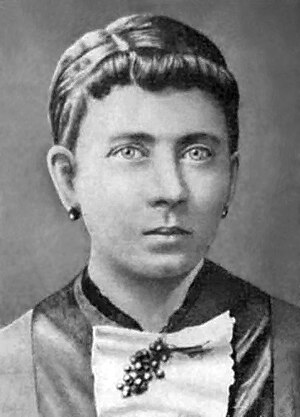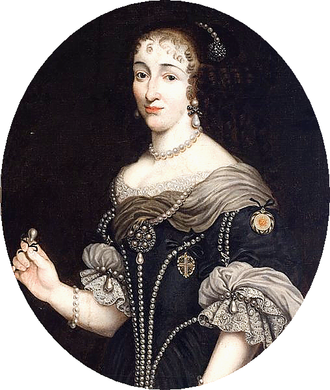Discover Your Roots
SIGN UPDiscover Your Roots
SIGN UPKlara is a female given name of Hungarian origin, meaning "Illustrious." The name exudes a sense of distinction and prominence. It is widely recognized in various forms, including the classical-music radio station Klara in Belgium and the area of central Stockholm known as Klara. Additionally, Czech singer Klára Vytisková is known by the name Klara. The name's significance resonates with its Hungarian roots and has an illustrious connotation. Furthermore, it has been associated with the VinFast Klara, an electric scooter manufactured in Vietnam. Klara carries a sense of elegance and prominence, making it a name with a rich and meaningful heritage.

Klara Hitler (née Pölzl; 12 August 1860 – 21 December 1907) was the mother of Adolf Hitler, the infamous dictator of Nazi Germany from 1933 to 1945. She was born in the Austrian Empire village of Weitra and married her relative Alois Hitler in 1885. Klara devoted her adult life to raising her children, only two of whom survived to adulthood: Adolf and Paula. After her husband's death in 1903, Klara moved with her two surviving children to Linz, where she lived frugally. In 1906, she was diagnosed with breast cancer, which had already metastasized by the time it was discovered. Despite undergoing a radical mastectomy and experimental chemotherapy treatments, Klara succumbed to the toxic side effects of the medication and passed away at home in 1907. Her death deeply affected Adolf, who carried the grief for the rest of his life. In his autobiography Mein Kampf, Hitler expressed his deep love and respect for his mother, stating that her death was a "dreadful blow." Klara Hitler's tragic story sheds light on the personal struggles and influences that shaped one of history's most controversial figures.

Klara Izabella Pacowa, also known as Claire Isabelle Eugenie de Mailly-Lespine, was a prominent figure in Polish court life during the 17th century. As a lady-in-waiting and confidante to Queens Marie Louise Gonzaga and Eleanor of Austria, she played a significant role in Polish political affairs. Klara Izabella's marriage to Krzysztof Zygmunt Pac, a court official, is believed to have influenced his career and loyalty to the king. She actively participated in state affairs, forming valuable connections, and supporting French interests during the election of 1661. Known for her influential role at the Polish court, she continued to navigate political alliances and maintain her position during the reigns of different monarchs. Despite facing personal challenges, including the deterioration of her relationship with her spouse and rivalries with other court figures, Klara Izabella remained a prominent presence in the political landscape. Her legacy as a powerful and influential woman at the Polish court endures, reflecting her impact on the country's history.Keywords: Klara Izabella Pacowa, Polish court official, lady-in-waiting, Polish political life, 17th century, influential woman, Polish court, political affairs, Queen Marie Louise Gonzaga, Eleanor of Austria



All images displayed on this page are sourced from Wikipedia or Wikimedia Commons.We use these images under their respective Creative Commons or public domain licenses. Wherever applicable, author attributions and license information are provided. If you believe an image is used incorrectly or outside its license terms, please contact us so that we can review and correct the issue.